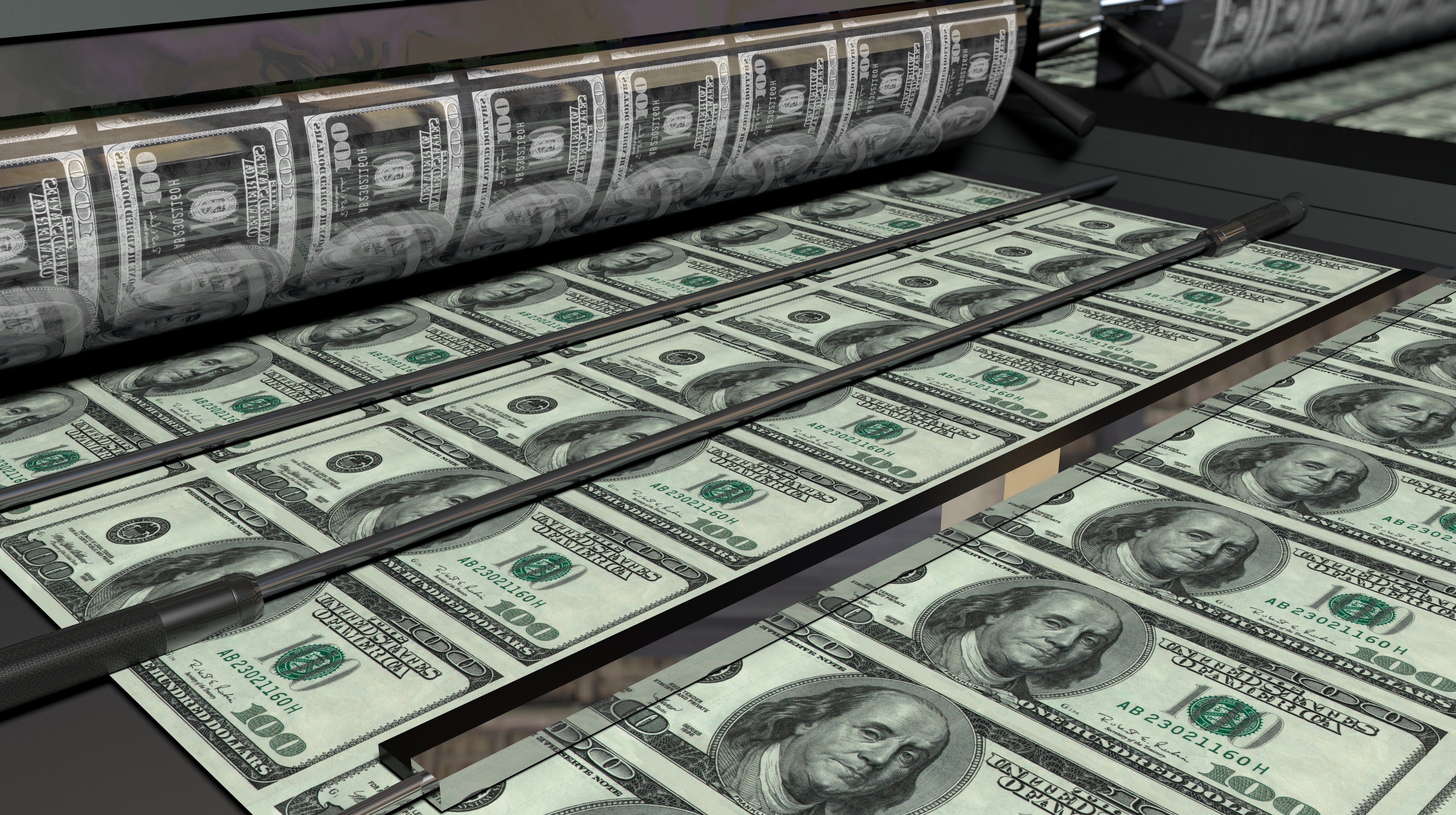Our national debt has just exceeded $30 trillion. That’s trillion, with a “tr.” In relation to the size of the economy, the size of our public debt now is greater than it was at the end of the Second World War.
And not many politicians or economists seem too awful worried.
The problem with a high public debt level is that it saddles the government with large future interest payment obligations. This leaves little room for other public expenditures and makes it difficult for the government to bring the budget deficit under control. Failing to rein in the deficit will keep the public debt increasing. In fact, the non-partisan Congressional Budget Office projects the country’s public debt to GDP ratio will approximately double from around 100 percent at present to 200 percent by 2050.
It is tempting under these circumstances to simply print the money to pay back our debtors, but taking such an action would devalue our currency. This would be especially catastrophic today, as inflation is already increasing at its fastest pace in the past forty years (7% in 2021). The Fed must now raise interest rates from zero to save the value of the dollar.

High inflation and high public debt are a dangerous combination. We have become the world’s largest debtor nation, which makes us economically vulnerable. For many years, we have relied on nations like China and Japan to finance our budget excesses.
If foreign lenders begin to perceive that we are in the process of inflating away our debt, they will be reluctant to hold that debt and will demand higher interest rates to compensate for inflation risk. This will only dig us into a deeper hole that we can’t crawl out of when it comes time for Congress to devise the annual federal budget.
Unfortunately, the recent lack of any real constituency for disciplined budget policies has given foreigners reason to doubt whether we will honor our public debt commitments without resorting to inflation. Politicians who promise tax hikes and cuts to federal entitlement programs are generally unpopular among voters. What many Americans do not realize (or perhaps ignore) is that short-term pain is necessary for long-term stability.
But surely our nation’s leaders know all of this…or maybe not. Let’s take a look at the actions of recent Presidents. First, the Trump administration enacted large corporate tax cuts and increased defense spending. Then, the Biden administration enacted a $1.9 trillion budget stimulus that contributed to our largest peacetime deficit on record.
We must realize the potential catastrophe set before us. We must not debase our currency to inflate away our debt. We must enact responsible budget policies. If we do not, the young generations of Americans today and those who succeed them may face great financial hardship.
I am not from the US, but the rising US debt has been making waves all over. Being an Economics major, this debt can cripple the US economy in the future if not handled well. As soon as the bond payments start to kick on, not only the government, but the lenders will also face massive losses because of a government default.
Ethan,
Wow, even as someone who actively follows the ins and outs of Washington, I never knew the extent to which America’s national debt has reached. You are absolutely correct, current legislatures have completely disregarded this CRISIS, which has, as you mentioned, led to distrust in our ability to repay our foreign lenders, increased inflation, and has caused record-high interest accumulations. It’s nice to know someone my age actually cares about financial discretions within American politics as these fiscal topics will affect our generation sooner than later. Great read Ethan, you are exceedingly bright :)!
Everything you said is absolutely correct, our debt problem has gotten to a point where it is completely out of control! My biggest concern surrounding our country’s debt problem is that existential problems such as the war in Ukraine and how that will impact how we are handling our debt problem. Our debt makes ideas like canceling student debt less and less likely.